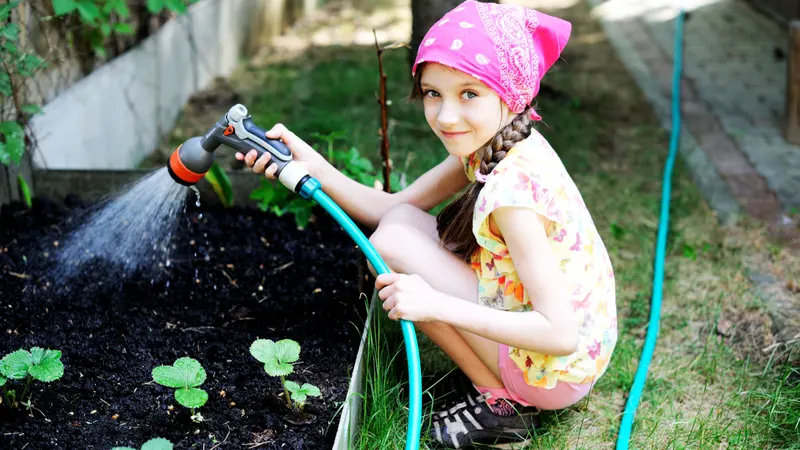

Community

Community
School Gardens Improve Student Health
Childhood obesity is the leading public health epidemic, according to the Oregon Public Health Institute, affecting nearly one-third of US children and adolescents. Experts say increasing physical activity is necessary for addressing the epidemic and promoting a healthy lifestyle in children. Research has shown that school gardens can complement physical education in meeting the recommended 60 minutes of daily physical activity while also positively impacting students’ mental and emotional health.
The National Association for Sport and Physical Education found that only 8% of elementary schools and 6% of middle and high schools fulfill the recommended time for student physical activity during a given week. Research has shown that physical activity during the school day more than compensates for time not spent on academic subjects, and results in improved cognitive performance, concentration, and behavior of students.
A 2011 study by Van Den Berg and Custers found that gardening relieves acute stress, decreases cortisol, and improves mood. Research published in Neuroscience found that interacting with Mycobacterium, a beneficial bacterium found in soil, improves cognitive function and triggers the release of mood-boosting serotonin, proving important links between gardening, good health, and academic performance. This research builds on earlier studies that found exposure to nature and greenery improves concentration and productivity and reduces procrastination.
REFERENCES
University of Georgia Extension. (n.d.) Foster children’s health: Physical activity and other health benefits of school gardens. https://extension.uga.edu/programs-services/school-garden-resources/research-publications/childrens…


 By
By







